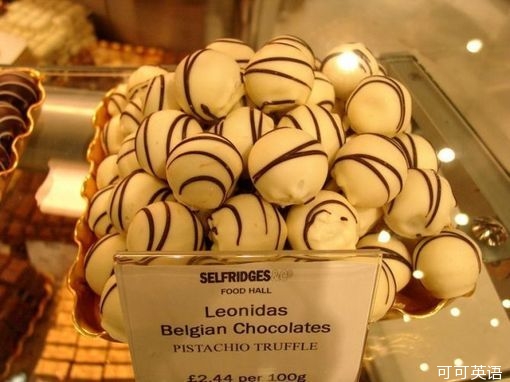假如你去眼鏡店配眼鏡,你買了一副特別高級(jí)的水晶石鏡片,卻配了一個(gè)塑料鏡框。當(dāng)你戴上這副眼鏡的時(shí)候,估計(jì)沒幾個(gè)人能看出來它們真正的價(jià)值所在。這就是我們今天要說的這個(gè)最新表達(dá)good lenses, bad frames,“好鏡片,賴鏡框”,真人不露相。
“Good lenses, bad frames” is used to describe someone who gives a bad first impression but is actually a good person, or someone who doesn't appear to be competent, yet is extremely capable at what he/she does。
“Good lenses, bad frames”(直譯為“好鏡片,賴鏡框”)通常用來描述那些給人第一印象不太好,但實(shí)際上人品很好的人;或者看起來沒什么本事,但其實(shí)工作能力很強(qiáng)的人。所以,可以譯為“人不可貌相”或者“真人不露相”。
For example:
Dr. Bruce is a spaz, but he's one of the best doctors I know. You wouldn't know it by looking at him...good lenses, bad frames。
布魯斯醫(yī)生是個(gè)怪人,不過他是我認(rèn)識(shí)的醫(yī)生中最好的一位。看他的樣子你是看不出來的,他是真人不露相。

還記得預(yù)測(cè)世界杯的“章魚帝”嗎?今天來補(bǔ)充一個(gè)和章魚有關(guān)的知識(shí),最近Nic迷上了這樣?xùn)|西—章魚小丸子。“章魚小丸子”原本生意就很好,如今生意也是越發(fā)火爆。今天咱就來學(xué)學(xué)這路邊一直能看到的“章魚小丸子”,英語該咋說。
“章魚小丸子”的英語是什么?
Tako means octopus in Japanese, and takoyaki are known as octopus balls. Takoyaki venders are very popular in Japan. To make takoyaki, a grill pan for takoyaki is used. The pan has many small cups to pour the batter.
在日本,我們所說的“章魚小丸子”就是“章魚燒”(たこ焼き),那在英語里面,我們可以用它的音譯說法“takoyaki”,或者就是純英語的說法“octopus ball”。大家注意,不是“魷魚”(squid)哦。











